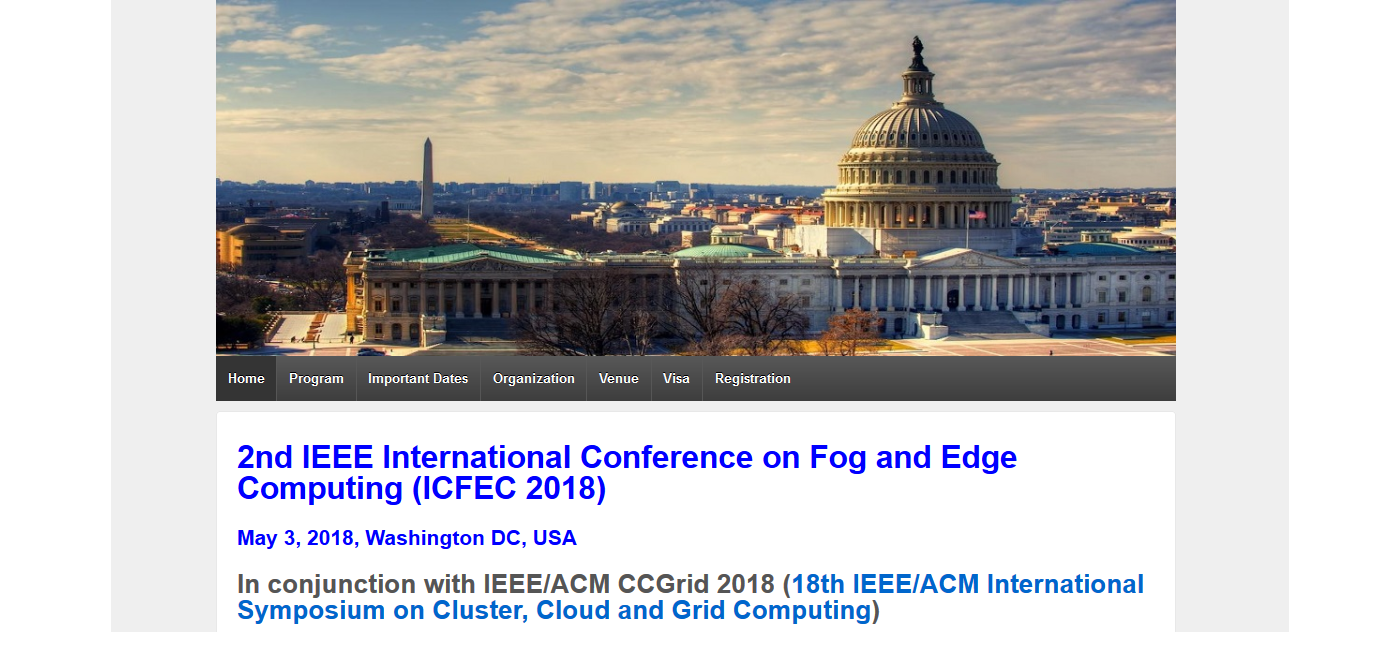We are delighted to announce that a research paper developed under the mF2C Project, has been accepted for presentation in the IEEE International Conference on Fog and Edge Computing (ICFEC 2018), to be held on 3 May 2018 in Washington DC, USA
Title “Data Preservation through Fog-to-Cloud (F2C) Data Management in Smart Cities”,
by Amir Sinaeepourfard*, Jordi Garcia Almiñana*, Xavier Masip-Bruin*, Eva Marín-Tordera*
* Advanced Network Architectures Lab (CRAAX), Universitat Politècnica de Catalunya (UPC), Spain
Abstract:
A vast amount of data is constantly being produced in the world from several sources, including the IoT at smart cities. Such complex universe of digital data is being set up through these daily accumulated fresh data over other historical repositories. This data can then be used in different forms and then be reused in further processes, hence, drawing
the life cycle of data. Conventionally, the smart city resources management are based on cloud models where sensors data are collected to prepare a centralized and rich set of open data.
Cloud-based frameworks provide several benefits, consisting of their ubiquity and (almost) unlimited resources capacity. But accessing data from the cloud results in large network traffics, high latencies and are not recommended for real-time solutions. In order to solve this, fog computing has been defined as a promising technology. It uses devices at the edge to perform closer computation and, therefore, reduces network traffic, decreases latencies, while enhancing security levels. In this paper we present the Data Preservation block, as part of our hierarchical fog-to-cloud F2C data management architecture. This model has the advantages of both fog and cloud technologies, as it allows reduced latencies for critical applications while being able to use the high computing capabilities of cloud technology. Furthermore, we have estimated the amount of collected data to be stored in the storage media, from fog to cloud layers, at the Barcelona smart city, and shown the tremendous advantages of such data organization
